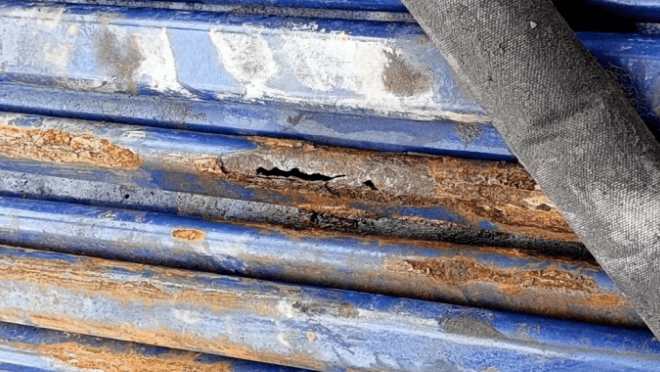
Causes
- Dissolved Oxygen: Oxygen in the feedwater enters the boiler and reacts with metal surfaces under high temperature and pressure, producing rust and other corrosion products.
- Water Flow: Slow-moving areas, like dead corners or welds, can create oxygen concentration cells that speed up corrosion.
- Poor Water Quality: Improper ph levels or hardness in feedwater can also promote oxygen corrosion.
Hazards
- Reduced Efficiency: Corrosion forms a scale on the boiler’s inner walls, lowering heat transfer and increasing energy use.
- Shortened Lifespan: Severe corrosion can thin or puncture boiler tubes, causing safety risks and reducing the equipment’s service life.
- Contaminated Water: Corrosion can contaminate the water, affecting boiler performance and steam quality.
Preventive Measures
- Deoxygenation: Use thermal or chemical methods to remove dissolved oxygen from feedwater, preventing corrosion.
- Maintain Water Quality: Keep the pH of feedwater between 9 and 11 and control hardness to minimize corrosion risk.
- Improve Operation Management: Regularly discharge water to avoid low-flow areas where corrosion can occur, and maintain stable boiler load.
- Use Corrosion-resistant Materials: Apply anti-corrosion coatings to boiler surfaces or use corrosion-resistant components to increase durability.
About Us
Shandong Bokk Tech is dedicated to solve the problem such as ash blockage, corrosion and excessive exhaust gas temperature in the tubular air preheater of small and medium-sized boilers. We primarily manufacture automatic cleaning devices for tubular air preheaters and corrosion-resistant heat pipes. Our products are widely used in the thermal power plants, chemical plants, new energy sector, etc.
We offer customized services to customers around the world, allowing us to adjust product dimensions and other specifications based on your specific needs, to improve air preheater heat efficiency.
Share The Post
